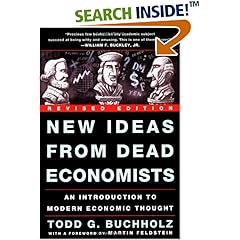"There are two deadly financial scandals that will break or which are in the process of breaking. One is the so-called "sub prime mortgage" swindle and the other is the coming collapse of the hedge funds. In the first instance, unscrupulous mortgage vendors deliberately target unsophisticated young potential home buyers or the elderly minorities and lured them with promises of very low rate mortgages. Of course the small print in light gray ink and 8 point type informed the poor sucker that, yes, you had a very low initial rate but soon enough, the rates could double or triple. And guess what, kids, they did.
And all across America, the banks and final holders of these con jobs results found their mortgages were worthless because the holders could not pay. Of course this was well-known to the initial con men but very often not to the banks or the victims holding the mortgages. All across America, sub prime mortgages giants quietly took their profits and moved to Spain, leaving tens of thousands out on the streets and a growing number of unoccupied, and unsaleable homes. The greedy banks and other mighty financial institutions, seeing how many hundreds of millions the initial salesmen were making, rushed to invest, something they will very soon regret.
While this drama is unfolding, another is in the wings, waiting to lumber onto the stage and explode. One of my friends in the FBI's White Collar Crime told me that most of the huge hedge funds are nothing but shells as their owners are operating one of the largest Ponzi schemes ever. Hundreds of billions have been looted and many of the very flush CEO's and their staffs have bought homes in foreign countries to be near the billions they have looted. In the first case, it is the poor that have been deliberately screwed and in the latter, the greedy rich."
What a great job. This will unfold just like the Savings and Loan crisis, another con game where the bailout bill landed in the lap of middle class taxpayers. The mortgage bubble, steps one, two and three:
Fed stops recession after 9/11 by pumping the economy full of cheap money.
Cheap money is distributed through the economy as cheap mortgages and real estate speculation.
Top of housing bubble is reached, demand is saturated, no more cheap mortgages can be risked, speculative profits from housing dry up, money flees back out, hedge funds that reward investors with profits earned from derivatives tied to mortgage bundles can't maintain their results, hedge funds blow up.
Final stage will be when taxpayers who did not take cheap mortgages and did not bank money from housing speculation or from hedge funds are implored to rescue both the homeowners who can't pay their mortages *AND*, by extension, the big banks who are holding those mortgages.


